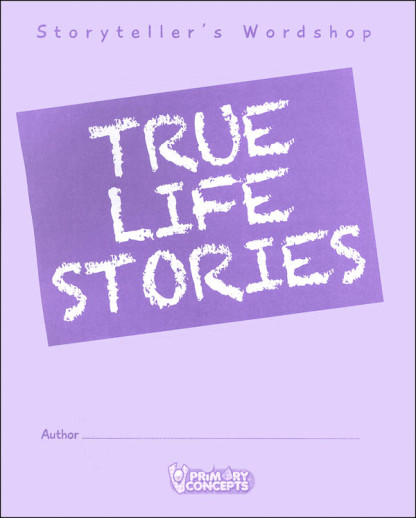We use cookies to make your experience better. To comply with the new e-Privacy directive, we need to ask for your consent to set the cookies. Learn more.
True Life Stories
Students write about some of their own life experiences: a lost tooth or when they were injured, as well as special events such as birthday parties or family vacations.
No more "loss for words!" Watch your students become prolific writers with their very own story-prompting journals. Each journal features 15 child-friendly, easy-to-read story starters: "I'm not afraid of many things, but I am afraid of" "I got hurt one day. It all started when" "The dirtiest I've ever gotten was one time when"
Each story features a large space for young artists to illustrate their stories, plenty of additional idea-sparker questions to get the words flowing if they get stuck, and even a place to record and practice spelling the new vocabulary words that come up in the creative process!
Each workbook in this series provides primary grade students with fifteen simple and specific independent writing projects to complete in journal form. Most inexperienced writers are reluctant to write on a regular basis because certain topics are just too complex or it is difficult for them to think of constructive or meaningful issues to focus upon. The books in this series help children write short entries of their own personal reflections on simple but relevant subjects. Students are also encouraged to draw a simple picture for each of their journal entries that would relate to the topic they have been directed to address. Each journal writing project is well designed, and prompts students to keep a record of new vocabulary words used during writing. From a secular perspective, the journaling workbooks do not include any reference to religious faith or Christian values. 30 pgs, pb. ~ Mike

